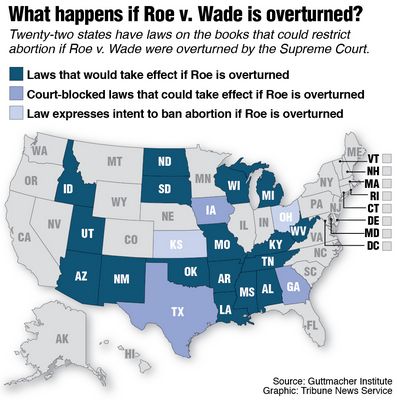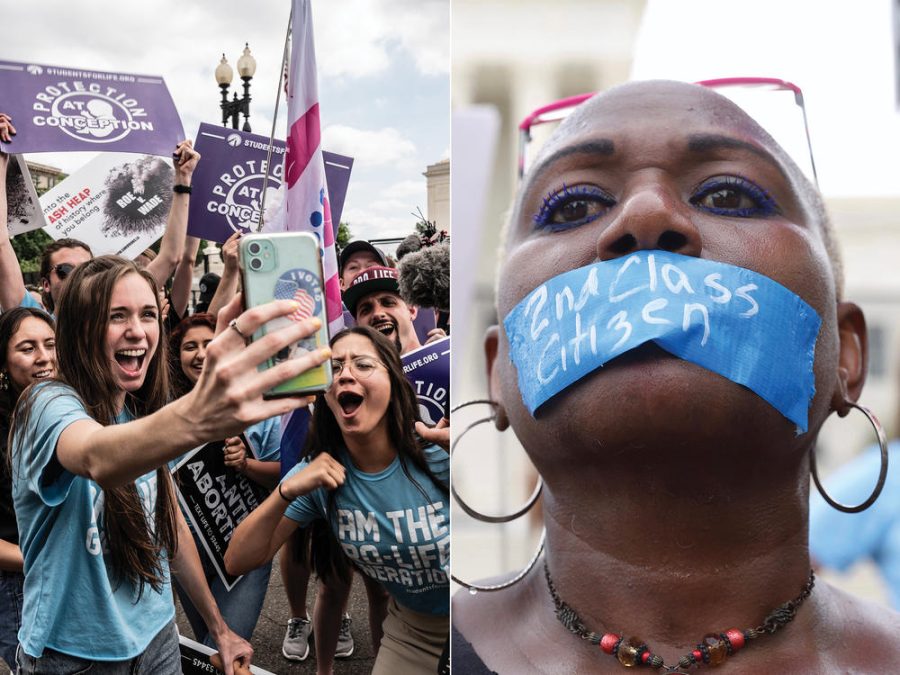An Uphill Battle
A photo of Roe v Wade protestors.
August 25, 2022
In 1973, the Supreme Court ruled in favor of Norma McCorvey after she sought a medical abortion in the state of Texas. This caused massive controversy seeing as Texas laws stated that abortions were only legal in the case that it would save a woman’s life. Using an alias to protect herself, Norma became the face attached to one of the most significant and influential supreme court rulings in United States history. The handle McCorvey used was “Jane Roe” and she aimed to sue the Dallas district attorney, Henry Wade, someone who sought to enforce the abortion ban. This famous case is remembered as Roe Vs. Wade and set a precedent for women’s right to safe, legal, and accessible abortions if they seek one.
The ruling came with its fair share of controversy, due to the extreme backlash received from alt-right and pro-life activist groups who saw women having their bodily autonomy as inconsiderate for the potential life growing inside of them. For nearly fifty years, the ruling stood strong and not only allowed women to seek safe abortions but set a precedent for all United States citizens to have their medical confidentiality upheld and respected. In the past half-century, many states passed laws that would reinstitute abortion limiting and prohibiting policies, should the ruling ever be overturned. Surely enough, on June 24th, 2022, the U.S. Supreme Court overturned this ruling. These laws, known as trigger laws, began taking effect shortly after.

In the weeks following this decision, passionate and strong protests emerged to show opposition to the decision. Major cities such as Washington DC, Los Angeles, and Chicago had their streets filled with angry protestors while their judiciary centers faced extreme pressure to pass legislation that would protect bodily autonomy rights that were, after so long, vulnerable once more. Not only are acts of protest taking place on the streets, but online as well. The popular short-form video app known as TikTok has served as a fruitful hub of information, personal stories, and powerful messages for movements beyond abortion rights. Black Lives Matter and LGBTQIA+ rights are also commonly advocated for on this platform. A common comparison used on TikTok to display the severity of this situation is the statement that a firearm has more constitutional rights than a person with a uterus. This, is a comparison of laws protecting firearm rights and laws protecting bodily autonomy rights.
Many believe that this decision and the abortion policies in place before Roe were part of a bigger plan to diminish the population of people of color and low-income individuals. Seeing as wealthy women are still able to have safe and legal abortions because transportation to other states without bans is more accessible, that means that the only people impacted by this are women who do not have the same financial resources. The way people of color are tied into this is due to extreme income inequality between different races.
The common thread between all of these arguments is that this fight is not over. Even fifty years ago when the original decision was made, there were endless amounts of backlash and opposition to women’s rights. The previously mentioned trigger laws are clear evidence of such. For any real progress to be made, further action on the legislative level must be made through the passing of protective laws and policies for women’s bodily autonomy.


